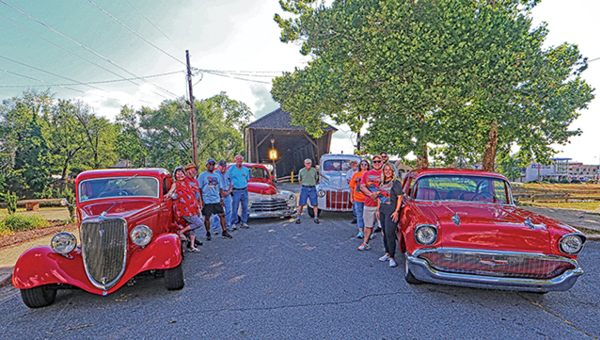Columbus Day, an oft-forgotten holiday, should be celebrated
Published 12:25 pm Friday, October 7, 2022
|
Getting your Trinity Audio player ready...
|
Columbus Day is Monday, October 10. Now, it is often referred to on the calendar as Indigenous Peoples’ Day. But, whatever you call it, it is the 530th anniversary of Columbus’ iconic voyage across the ocean from Europe to the Americas. The epic achievement is certainly worth commemorating and acknowledging, as this single, momentous event changed pretty much everything in the world, from the moment Columbus and his contingent of shipmates made landfall in the Caribbean to half a millennium later — and forevermore.
The holiday has been renamed Italian Heritage/ Indigenous Peoples’ Day, and while both certainly deserve recognition, Columbus can never and should never be erased nor minimized. We will always acknowledge him and his towering achievement. He introduced two very different worlds to each other, as a representative of his countrymen of the region now known as Italy, the Spanish crown which funded the voyage, and in effect, all of Europe.
The entire Western Hemisphere was largely unknown to the Eastern Hemisphere and the changes wrought are countless.
The world without this encounter is impossible to even imagine. The meeting will surely always be marked on historical timelines of the world’s pivotal events for as long as our civilization exists.
Columbus is certainly a well-deserved source of pride for Italians and Italian-Americans. On his day we also celebrate the Italian people’s contributions and achievements in every category of civilization one can imagine — exploration, art, music, fashion, engineering, science, cuisine, medicine, literature, religion, and more.
In Christopher Columbus’ day, scholars knew already that the world was round; the fact dated from the ancient Greeks. People assumed that a ship traveling west from Europe would sail clear through to Asia. However, many believed that such a westward journey was impossible. Columbus, an Italian, was convinced otherwise and persuaded King Ferdinand and Queen Isabella of Spain to sponsor his exploration and search for riches.
The observance of Columbus Day is not without controversy, however. Although Columbus’ landing in the New World marked the start of a new age of exploration and development for the world, the reality of European colonization is that it brought disease, enslavement, and genocide to the indigenous people of the Americas. This part of colonial history has largely been left unrecognized in Columbus Day celebrations, though in recent decades this has been changing, with more and more cities and states choosing to celebrate Indigenous Peoples’ Day instead.
Last October, U.S. President Joe Biden became the first to officially recognize Indigenous Peoples’ Day with a proclamation. He also, however, released a separate proclamation commemorating Columbus Day and praising the “millions of Italian Americans (who) continue to enrich our country’s traditions and culture and make lasting contributions to our nation.” The proclamation also cites, however, the “painful history of wrongs and atrocities that many European explorers inflicted on Tribal Nations and Indigenous communities.
“It is a measure of our greatness as a Nation that we do not seek to bury these shameful episodes of our past — that we face them honestly, we bring them to light, and we do all we can to address them,” the federal proclamation stated.
Not everyone believes that the Italian explorer should be honored on the same day as America’s original residents, many of who were subjugated or killed after Columbus’ discovery.
The purpose of Indigenous Peoples’ Day is not to erase Columbus Day from history, but rather to recognize, honor, and celebrate the Native American cultures and people who have inhabited the Americas since long before European explorers arrived.
But, it has been Columbus Day a long time and a day worth commemorating.





